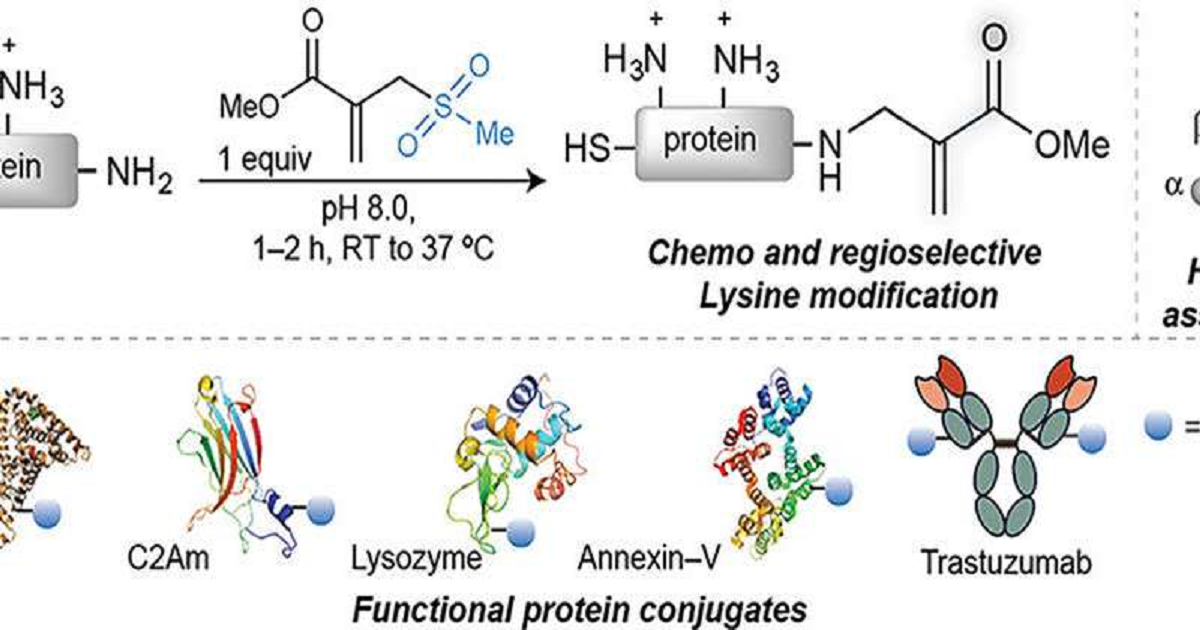How to spark a chemical chain reaction
phys.org | March 09, 2018

Tailor-made protein drugs in the fight against cancer and other diseases are a step close, with the Centre for NanoScale Science and Technology at Flinders playing a part in one of the latest chemistry discoveries in effectively modifying therapeutic proteins. Just published in the Journal of the American Chemical Society, a new paper titled "Chemo- and Regio-selective Lysine Modification on Native Proteins," describes a process which allows molecules, such as drugs, to be attached to antibodies and other proteins at precise locations. “Most current methods for attaching drugs to proteins result in unwanted mixtures that can compromise protein function," says Flinders University Senior Lecturer in Synthetic Chemistry Dr. Justin Chalker, who is a collaborator on the research. “In contrast, our chemistry is easy to do and highly precise," he says.The international team of researchers, led by Gonçalo J. L. Bernardes from the University of Cambridge and the Institute of Molecular Medicine Lisbon and Gonzalo Jiménez-Osés of the University of Rioja in Spain, has discovered a sulfonyl acrylate reagent that should give researchers more options for modifying proteins.